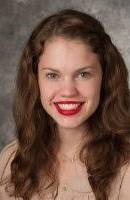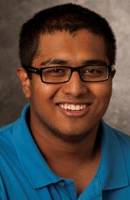Making our schools better
Two SMU students learn about improving schools during a tour with DISD Supt. Mike Miles.

As part of an education class at SMU’s Simmons School of Education and Human Development, Anna Norkett, who is studying economics and public policy, and Rahfin Faruk, a student trustee, had the opportunity to visit schools with Mike Miles, the Dallas Independent School District’s superintendent. Here is what they had to say (Also see their blogs.):
|
Anna Norkett:
To learn more about issues I wanted a role in advocating for, I enrolled in the course “Contemporary Issues in Education Reform” at SMU’s Simmons School of Education and Human Development. In this course, we had the opportunity to interview key thought leaders in education and then craft our own opinions through writing. One of the most memorable experiences was joining Dallas ISD Superintendent Mike Miles on one of his site visits to J.L. Long Middle School. Our first stop: sixth-grade theater. It was immediately clear the teacher had control of the class. She was energetic, set an explicit purpose for the lesson, assigned specific roles to the students, and even included language arts terms. I could feel learning taking place. After observing for a few minutes, we went out in the hall to debrief. One of the first observations Miles made was that the teacher set high expectations for her students. Nothing less than their full attention and best work was required. This type of instruction is what Miles expected out of teachers, and she rose to the challenge. The more people we interviewed, the more I saw a similar pattern. Kyle Richardson, principal of Woodrow Wilson High School, has a history of transforming schools by focusing on raising the standards of what happens in the classroom. Rosemary Perlmeter, CEO of the Teaching Trust and one of the founders of Uplift Education, told me about the power of a positive culture and setting clear expectations in schools. Regina Nippert, executive director of SMU’s Center on Communities and Education, explained the corrosive attitude poverty can create in schools and how if the school has low expectations for the students, the school might be holding the community back. In all their stories, I learned about how powerful a single teacher can be, about how schools need to engage with the community, about how school culture matters. While we discussed the importance of national policy, we recognized what we also need are people on the local level to implement these policies. |
Rahfin Faruk:
After coming to SMU, a few miles from my home in Richardson, I realized that I had created a romanticized version of my high school experience. Even within my own high school, some students went off to Ivy League schools but far more never crossed the graduation stage. This reality exemplifies the crisis in American education. Only in 1 in 4 high school students graduates college-ready in the core subjects of English, reading, math and science. If the 1.3 million dropouts from the Class of 2010 had graduated, the nation would have seen $337 billion more in earnings over the students’ lifetimes. As a result, words like innovation and change have become the rage in education policy — vested interests and outsiders, Democrats and Republicans, public servants and nonprofit heads have all said in chorus, “Something needs to be done.” But the doing is where there is no agreement. Large billionaire-backed foundations have called for smaller class sizes and technology. Teacher unions have lobbied for more funding for classroom resources and higher pay. Free market advocates have argued for school choice and technical learning. As part of a class on education policy that I took at SMU’s Simmons School of Education and Human Development, we had the opportunity to ride around with Mike Miles, the Dallas Independent School District’s superintendent. When I asked him what transformations were underway at DISD and around the country, he quickly corrected me: He said we were experiencing reform — a far cry from transformation. Miles made a salient point. Transformation is a thorough change in form while reform is change within an existing institution. |
 When I was asked last spring what I wanted to do after graduation, the answer was simple: education reform. The logical follow-up question was always, “How are you going to do that?” I knew I wanted to raise standards, and at the time, I thought that meant I needed to move to Washington, D.C., to enact policies that would reform schools.
When I was asked last spring what I wanted to do after graduation, the answer was simple: education reform. The logical follow-up question was always, “How are you going to do that?” I knew I wanted to raise standards, and at the time, I thought that meant I needed to move to Washington, D.C., to enact policies that would reform schools. I had public school high teachers who could bring the driest material to life. My physics teacher lay on a bed of nails to explain the relationship between surface area and force, and my American history teacher linked the Lincoln-Douglas debates to contemporary problems.
I had public school high teachers who could bring the driest material to life. My physics teacher lay on a bed of nails to explain the relationship between surface area and force, and my American history teacher linked the Lincoln-Douglas debates to contemporary problems.